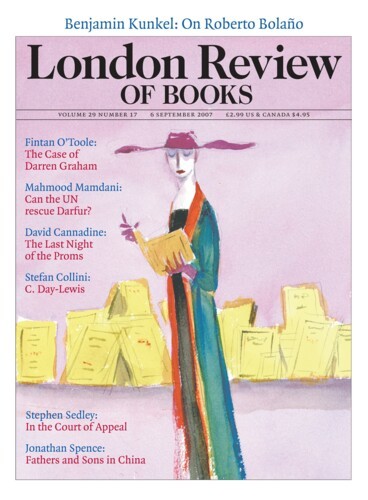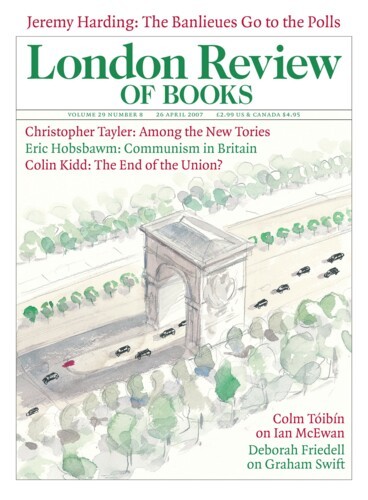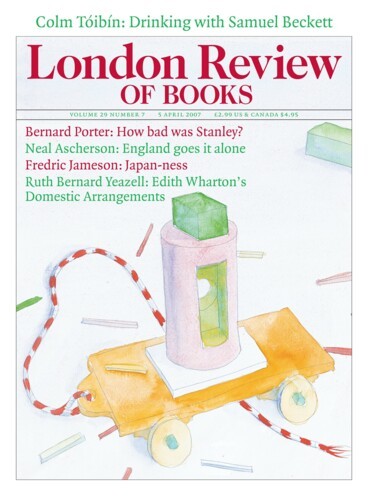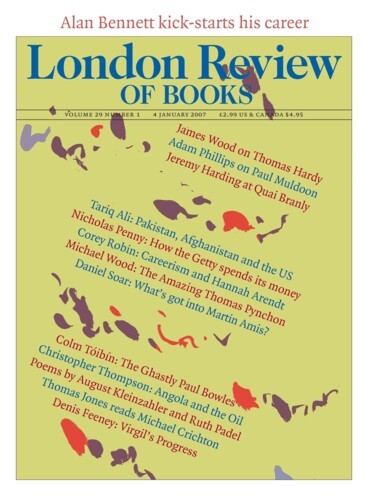A Man with My Trouble: Henry James leaves home
Colm Tóibín, 3 January 2008
After the death of Henry James’s father in 1882, his sister-in-law Catharine Walsh, better known as Aunt Kate, burned a large quantity of the family papers, including many letters between Henry James senior and his wife. Henry James himself in later life made a number of bonfires in which he destroyed a great quantity of the letters he had received. He often added an instruction to the letters he wrote: ‘Burn this!’ To one correspondent, he wrote: ‘Burn my letter with fire or candle (if you have either! Otherwise, wade out into the sea with it and soak the ink out of it).’ In two of his stories, ‘The Aspern Papers’ and ‘Sir Dominick Ferrand’, valued letters are turned to illegible ashes – ‘as a kind of sadism on posterity’, in the words of his biographer Leon Edel. James was fully alert to the power of letters, having paid close attention to the published correspondence of Balzac, Flaubert and George Sand, and alert to the power of editors. After reading Sidney Colvin’s edition of the letters of his friend Robert Louis Stevenson, he wrote: ‘One has the vague sense of omissions and truncations – one smells the thing unprinted.’





